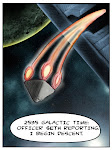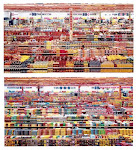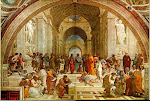Key words: Professione: Reporter (The Passanger), Michelangelo Antonioni, Jack Nicholson, cinematic codes, expectation, films.
I’ve just got this idea –quite obvious, isn’t it?- of writing a short review to each recommended film. So let’s get into this before the month is over.
This month’s film is Professione: Reporter [AKA The Passenger] (1975), by Michelangelo Antonioni, starring a 38 year-old Jack Nicholson as a journalist who changes the direction of his life by assuming the identity of a dead stranger.
To be honest, I chose this film because I had seen it for the first time and couldn’t believe I had been going through my cinephile life without having ever seen it (I’m a lazy cinephile I must admit –the film had been in my ‘to-be-seen’ list for almost a decade).
You know, many films have acted as turning points in the history of cinema (Citizen Kane, Breathless, The Idiots, just to mention a few). They have all introduced new elements to the language and grammar of films after which the ‘state of the art’ has never been the same. Well, Professione: Reporter is not the case. Not because there’s nothing new in it. On the contrary, the film is a beautiful bunch of narrative and cinematic reformulations. As Martin Walsh (1975)[1] put it, Antonioni tests “the limits of cinematic codes.” His strategy seems to be “a consistently varied deflection of the normative transitions from shot to shot.” That is, Antonioni subverts our logical expectations, and, in doing so, he questions most of the traditional narrative codes of cinema. All traditional ideas about continuity (spatial, temporal, narrative [2]) and even about the “diegetic centrality of the plot” (where the attention of the camera is –Walsh again) are put at risk.
At the very beginning of the film, after we see Locke (Nicholson) struggling with his language in the
What has happened? Who were these men? That was not important. We, as traditional viewers, would expect some answers, but they will never come –not as answers at least; if anything, they’ll arrive later on, as personal inferences. Thus, Antonioni is violently submerging us in a world where the expected is never realized.
 Antonioni’s narrative, however, could not incarnate in many later filmmakers –leaving aside the intentionally experimental ones. In consequence, Professione: Reporter remains, as much of his filmography, no more –and no less- than a profound cinematic experiment. A beautiful one I would say.
Antonioni’s narrative, however, could not incarnate in many later filmmakers –leaving aside the intentionally experimental ones. In consequence, Professione: Reporter remains, as much of his filmography, no more –and no less- than a profound cinematic experiment. A beautiful one I would say.
[1] Walsh, Robert (1975) “The Passenger, Antonioni’s narrative design.” Jump Cut, no. 8 [on line]
















.gif)






No comments:
Post a Comment